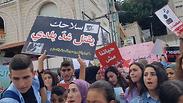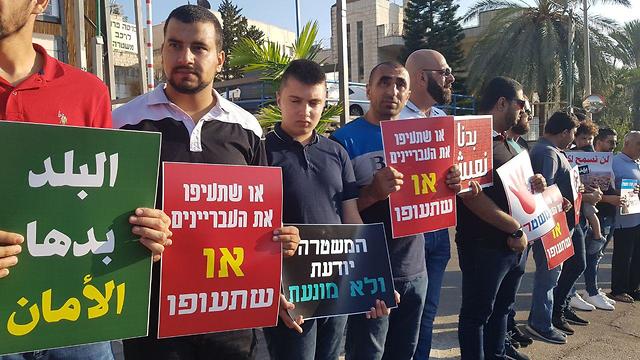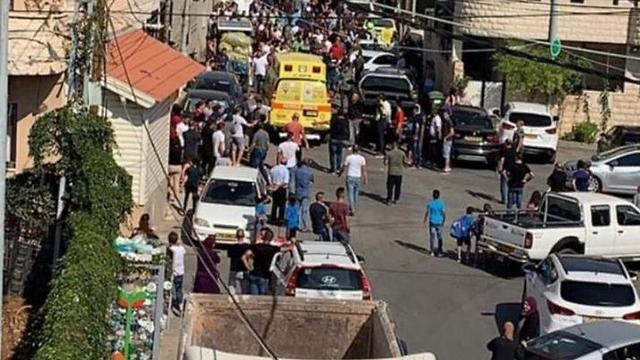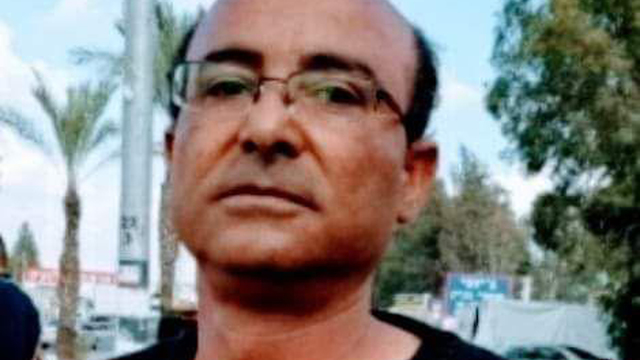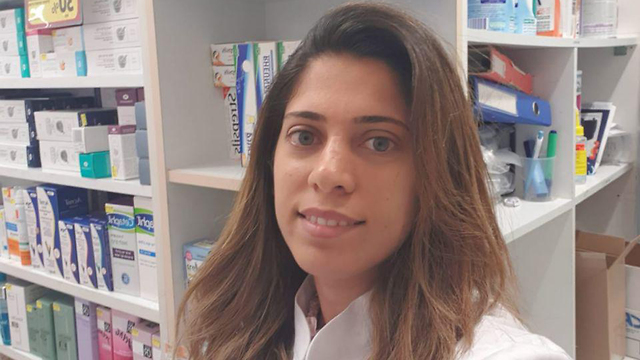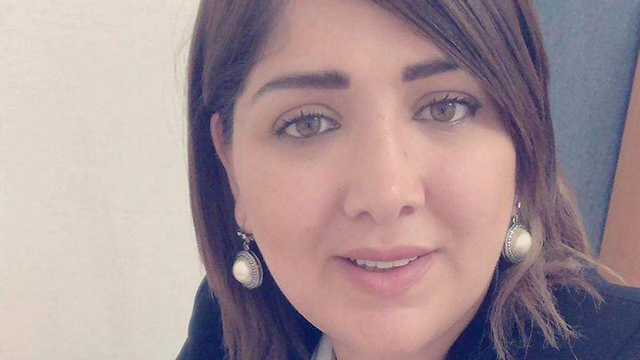
As violence spikes, Israel's Arab community to hold general strike Thursday
With 68 murders in the sector since start of the year, local leaders say police must take the phenomenon seriously and act to quell growing bloodshed; activists say indifference by authorities just as much to blame for the spiralling violence
The strike will be upheld by local businesses, schools and other public institutions and will coincide with the swearing-in of the new Knesset. Arab MKs will also take part in the strike and will not attend the Knesset ceremony.
Public Security Minister Gilad Erdan will also hold an urgent meeting on the issue with the police authorities.
The Education Ministry, however, said Wednesday that all schools will open on schedule in the Arab communities.
The head of the Joint List of Arab parties, Ayman Odeh, said Wednesday that indifference by the government and the police were to blame for the high murder rate in the Arab community.
"The dozens of people murdered since the start of the year are not just the victims of violent crime, but also victims of indifference by the government and law enforcement authorities," Odeh said, explaining why his party is boycotting the opening of the Knesset.
"We cannot continue to bury our children while the rest of the Knesset members are filmed celebrating in the plenary," he said. "We will join our public in protests across the country."
The planned protest comes after brothers Ahmed and Khalil Mana were killed Tuesday in the Galilee town of Majd al-Krum, apparently hit by gunfire during a brawl. A third brother was lightly hurt, and another person involved in the brawl was seriously wounded.
On the same morning, unidentified individuals opened fire at the vehicle of the local council leader in the nearby town of Nahf.
Tuesday's killings bring to 13 the death toll in the community in September alone; since the beginning of the year, 68 people have been murdered in violent incidents in the Arab sector.
The announcement of the strike also comes in response to multiple calls within the Arab community for protests over the ongoing wave of violence.
"We need to paralyze the country. It's time for us to take to the streets, demonstrate and block roads," says Abed Odeh of the central Israel town of Kalansua.
"We need to shout and protest to the police and the government over the ongoing disregard that means the murders are still happening. The situation is serious and demands that we do not remain silent. A serious struggle is needed - not speeches, but rather very significant steps."
"Violence in Arab society has reached a peak - almost every home has suffered a violent incident, or terrorism as I call it," says social activist and pharmacist Dalia Kassem.
"We want quiet. We want to walk down the street without fear of stray bullets or witnessing a murder," she says.
"We want to sleep without being woken by the sound of gunfire or explosions. We want our children to grow up in a safe society."
The protests are expected to continue even after Thursday's strike.
"On Saturday, we the women will be demonstrating in front of the police station to convey an important message about the danger in which we live, because of the (lack of desire) to stop the murders," says Rahab Abu Shakra, a resident of Umm al-Fahm and the chair a local NGO.
"We are in favor of declaring an emergency and an open-ended strike until we have a solution," she says.
"We are living in fear, not knowing who will be next. There is no situation in which we would sit by and watch without talking action."
Among the homicides that make headlines, violent incidents often occur in the Arab communities that do not garner media attention but still undermine the local residents' sense of security.
For example, a video has popped up on social media in recent days showing a man shooting from a rooftop in the Bedouin village of Tuba Zangariya in northern Israel.
Many residents complained about the noise - which particularly frightened the children.
"That day I took the children and went to sleep at relatives in another community," says one woman who lives in the village.
"The shooters don't care if they hurt anyone, and they don't care about our fear."
Police have arrested a suspect involved in the shooting, and are searching for two other suspects whose identities are known to the authorities.
The detainee is a young man in his 20s who apparently was shooting during a wedding celebration. He was remanded in custody at Nazareth District Court.
The activists organizing the protest say it is police inaction that propagates the wave of violence.
"The police have failed to eliminate this phenomenon," says social activist Tahrir Aruk Basul of the northern town of Reineh.
"They must take proper action in the Arab communities and wipe out the rampant crime that harms every citizen," she says.
"That's their job - to examine where all the weapons that hurt children, women, the elderly and men are coming from."
If the police fail to take action, she warned, "we will work to set up self-defense groups that consist of volunteers from the Arab community and fill the gap left by the poorly functioning police."
Israel Police said in response that they were taking vigorously action to combat the violence.
"In recent years, Israel Police has been working with the Ministry of Public Security to address the unique needs of the Arab community, to combat crime and increase the sense of security.
"As part of a multi-year plan to strengthen police services in the community, new police stations were created and existing ones were bolstered, and hundreds of new police officers were recruited."
